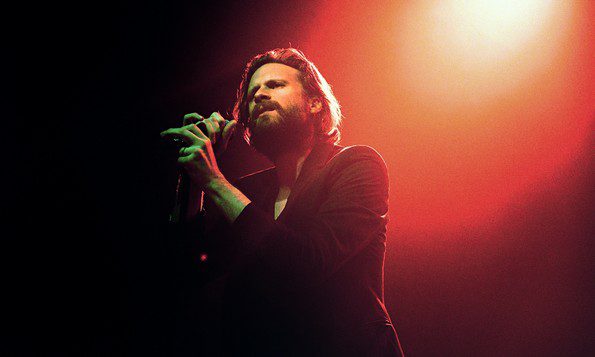
I subscribe to Rolling Stone magazine. I love reading the feature articles, interviews, and movie reviews. In the April 21, 2016 issue there as a short interview of Father John Misty (Joshua Tillman) — an American singer and songwriter. Tillman was raised in a strict Evangelical home. When asked, Was there anything valuable about your Evangelical upbringing?, Tillman replied:
I was promised redemption and forgiveness and salvation over and over, but it never manifested in any meaningful way. It was like Charlie Brown and Lucy with the football.
As I read Tillman’s answer, I thought, what a great analogy, one that describes the experiences many of us had with Evangelicalism. For those of us who are now atheists and agnostics, Lucy pulled the football away from us one too many times.
In a 2015 The Guardian story, Tillman had this to say about his religious upbringing:
“I went to a Pentecostal messianic Jewish cult school where I was taught to exorcise demons from my classmates and speak in tongues, and had these insane engineered psychedelic experiences,” he elaborates. “People were lifting my arms up to worship while kids lay convulsing on the floor, talking about seeing their dead grandparents. It was flat-out insanity, and I should have been writing about that.” Why wasn’t he? “I didn’t want anyone to know about my upbringing. It’s still a major source of pain and confusion. I didn’t get to choose my childhood, and I felt doomed. The further I get from those experiences, the more of a sense of humour about it I have. In a broad sense, I mean. I don’t think it’s hilarious or anything.”
In a February 2015 Rolling Stone feature article, Jonah Weiner had this to say about Tillman and his Evangelical upbringing:
It’s pretty intense conversation for midafternoon, but Tillman has always been, by his own account, an intense guy. He grew up in Maryland the eldest son of devout evangelical Christians. “It was the most suburban, bleached-flour kind of scenario you can imagine — aside from the Messianic-Judaism, Pentecostal, speaking-in-tongues, getting-slain-in-the-spirit, having-demons-cast-out-of-you stuff,” he says. “For my parents, heaven and hell were real. It’s bizarre to contemplate eternal damnation as an eight-year-old.” A born skeptic, he never fully bought into his parents’ religion. Instead, he got heavily into comics with skewed perspectives, like The Far Side and Calvin and Hobbes, and for a time he wanted to be a cartoonist. That dream gave way, when he got wind of Bob Dylan, to a musical fantasy, and at 19 he dropped out of New York’s Nyack College — a Christian school he’d enrolled in mostly to appease his parents — and moved upstate, where a buddy was building a recording studio in a farmhouse. (Tillman’s relationship with his parents, long turbulent, has lately improved — “They’ve recently begun acknowledging that I’m an artist” — but it’s not a subject he enjoys discussing.)
Tillman’s story is yet another illustration of the damage that Fundamentalism — with its strict social codes and rules — can do to impressionable young minds. (See Are Evangelicals Fundamentalists?) While Tillman’s music is certainly influenced by his Evangelical upbringing, I suspect he would advise people to avoid Evangelicalism as they would when coming in contact with a Walking Dead-style, brain-eating zombie. .
Father John Misty cover of Arcade Fire’s song, The Suburbs.
Father John Misty cover of Taylor Swift’s song, Blank Spaces
